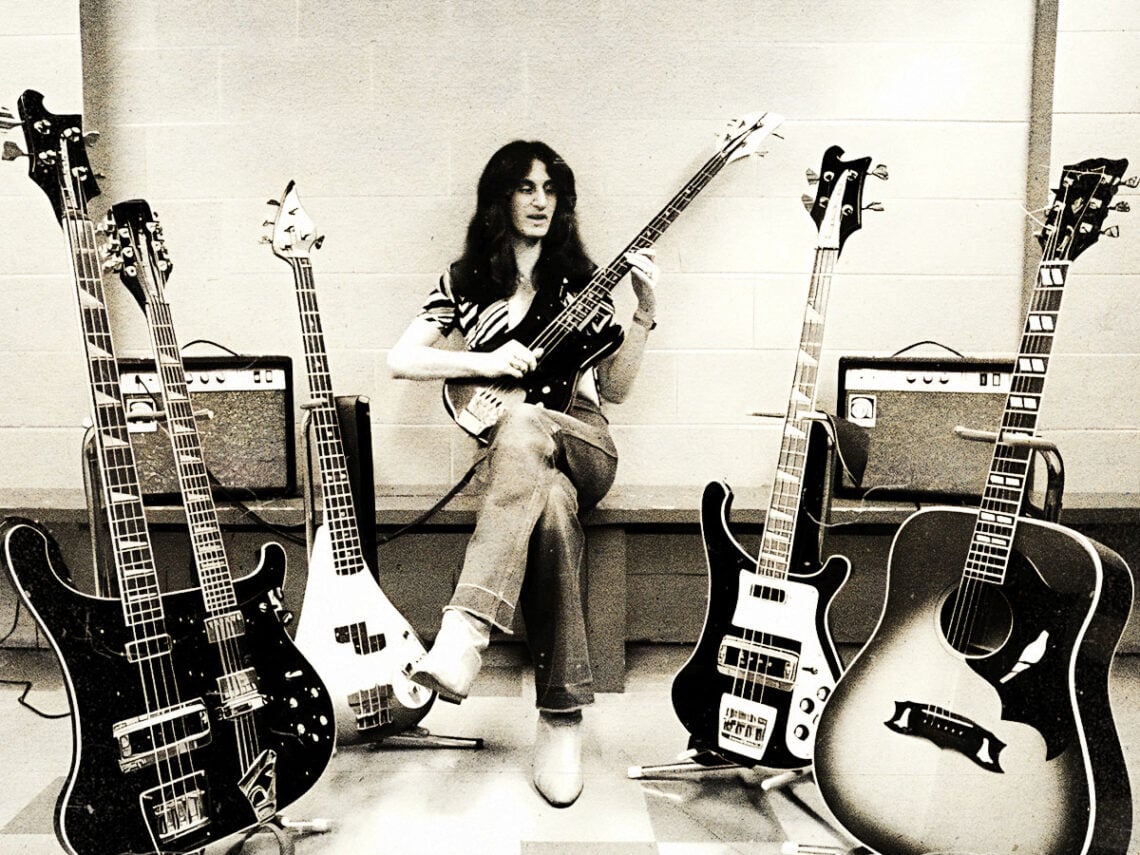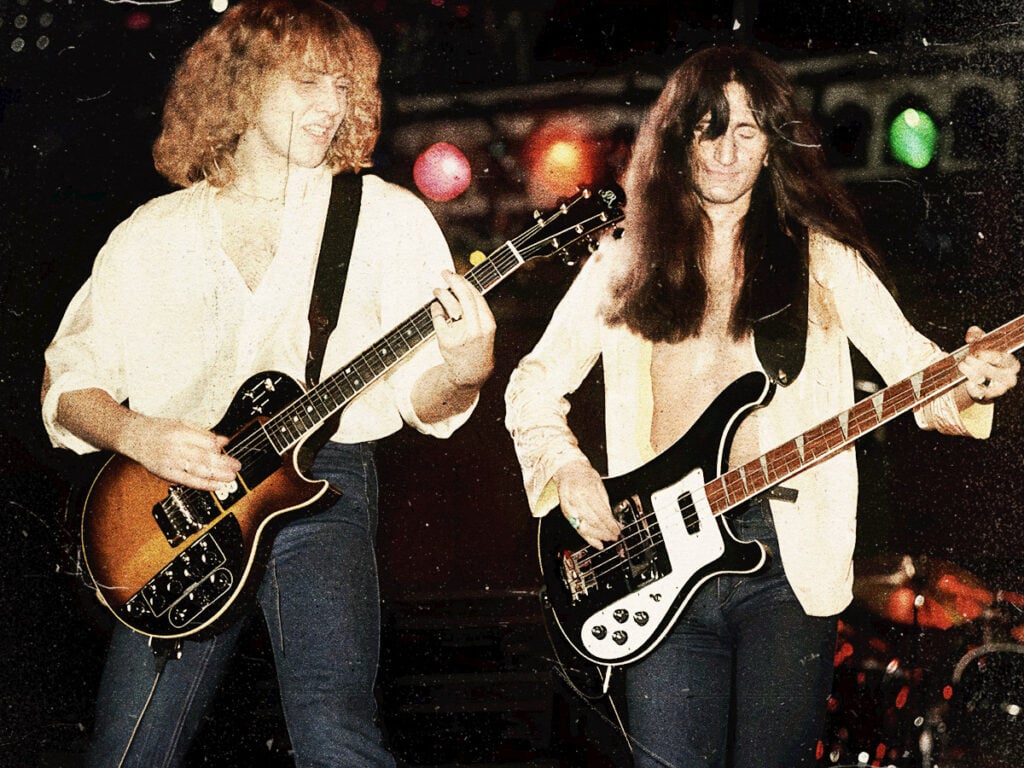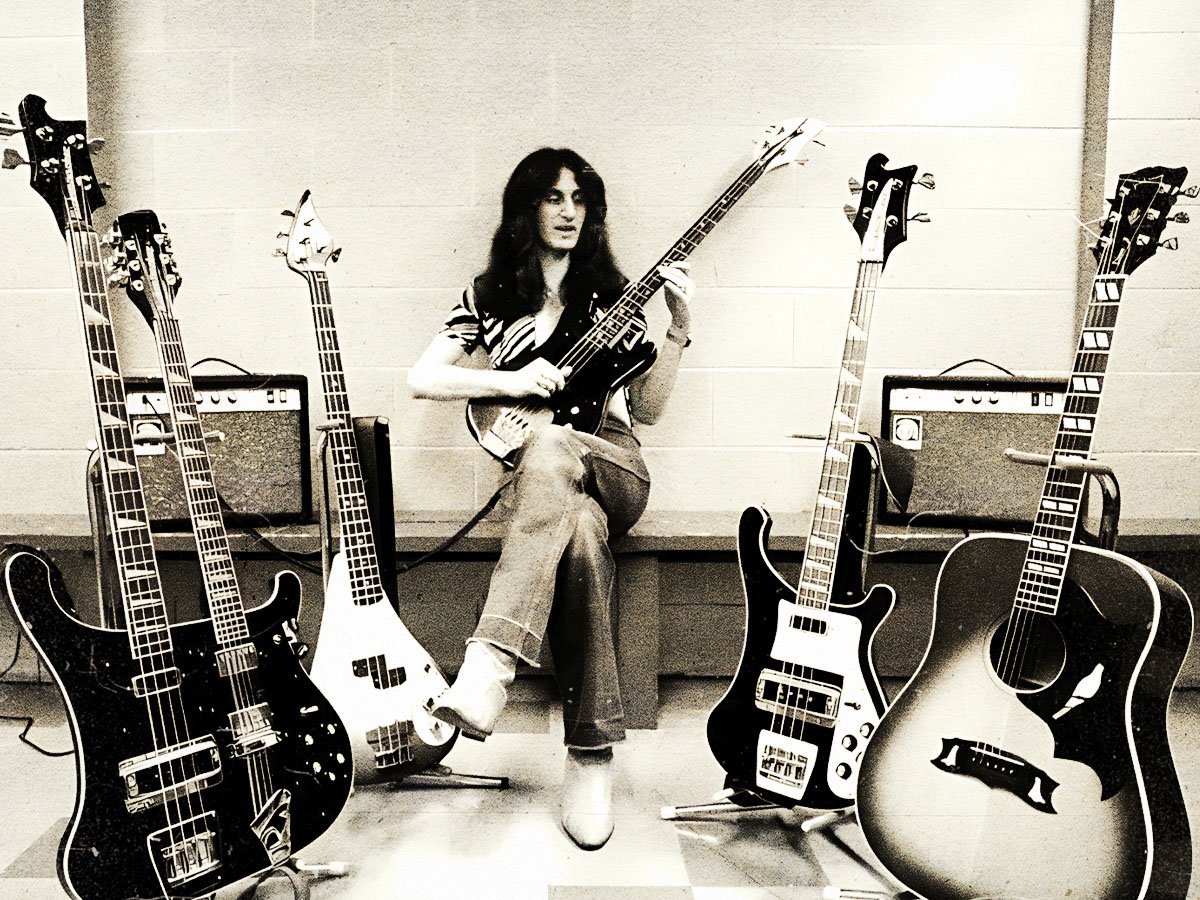
(Credits: Far Out / TimothyJ)
Mon 27 October 2025 3:00, UK
It was 1969, and Geddy Lee was a bumbling 16-year-old teenager, built like a beanstalk with barely even the faintest attempt at a goatee. His father had sadly passed away when he was young, leaving a hectic household and an eminent sense that life is short and has to be seized in his wake.
However, much to Lee’s mother’s chagrin, he set about seizing it a little too readily for her liking after he dropped out of school to try and make it as a musician. One band had proved pivotal in this decision, though he was well aware that following in their footsteps would never be an easy feat.
The skill of Led Zeppelin was beyond him at that point. And if he didn’t know that already, his mother certainly made him well aware. Rather than deter him, her disappointment would prove to be a driving force. “I felt like I had to make sure that it was worth it,” he recalled. “I wanted to show her that I was a professional, that I was working hard, and wasn’t just a fuckin’ lunatic,” he told Rolling Stone.
He knew that if he was ever going to prove her wrong, he’d have to take a different approach to education, sharpen his skills, and get to the point where he could grow a half-decent goatee and at least strum along to the Stones. So, when he spotted a tour poster for The Rock Pile gig in Toronto, it lit up like a beacon of hope for the would-be rock star. Alongside Alex Lifeson and Rush’s original drummer, John Rutsey, Lee queued for hours to get in.
The big draw was Led Zeppelin, at the time, a little-known act buoyed by the esteemed presence of Jimmy Page in their ranks. After hours of waiting in the sweltering August sun among the general admission masses, Lee and his cronies in Rush managed to get second-row seats.
“They literally brought the house down because, by the end of the night, there was plaster falling from the ceiling,” he recalled.
 Rush performing in 1978. (Credits: Far Out / Alamy)
Rush performing in 1978. (Credits: Far Out / Alamy)
It was a Promeathean moment. Any notion of returning to school was drowned out by the tinnitus of roaring rock ‘n’ roll. He had witnessed the benchmark that he wanted to rise to. As soon as Led Zeppelin’s debut was released, he raced to the store, and along with his Rush bandmates in the making, sat around it as though it was magic. To them, it really was.
So, in their naivety, they decided that they would play along to the record and set up a covers band before working on their own songs and ultimately usurping their heroes. As easy as that. They were, of course, absolute idiots. They slaved away in their basement practice room trying to cover the band, but immediately found their way “too hard” to play. Even when they started gigging, they still weren’t ready to master their heroes’ work.
“We tried a number of Zeppelin songs when we played in the bars, but we felt we couldn’t pull them off. We did have ‘Livin’ Lovin’ Maid’ in our set for a while, though,” Lee recalls. He remembers it as the only one that they could get remotely close to mastering. With a repetitive pattern in A major, it might not be what you’d consider as classically easy to play – it is bloody Led Zeppelin – but it is classically easy to practice, so to speak. They might have wanted to nail ‘Communication Breakdown‘, but they just couldn‘t manage.
Differing from the likes of ‘Black Dog’ dramatically, this cut from their second album doesn’t cram in as many chords as the others, relying more on the rhythmic chugging of the blues. Ironically, this, in some ways, ties into the sense of dynamic movement that Rush would develop to a mindbending degree once they got Neil Peart behind the kit and reimagined what ‘rhythmic’ meant in rock.
It’s also not without irony that while Rush may have been playing it live, Led Zeppelin weren’t because Jimmy Page hated the very rudimentary structure that made it possible for Geddy Lee and his mates to finally get a gig together, play something people had heard, and bring back a small pay packet as a rather pathetic ‘I told you so’ to his mother.
Whether they also picked it to play because they also misinterpreted its lament of a certain groupie as a celebration is another matter, but it certainly provided the perfect education for a young group who would go on to be one of the very few who could ever compete with the complexity of their heroes.
Related Topics
The Far Out Led Zeppelin Newsletter
All the latest stories about Led Zeppelin from the independent voice of culture.
Straight to your inbox.
